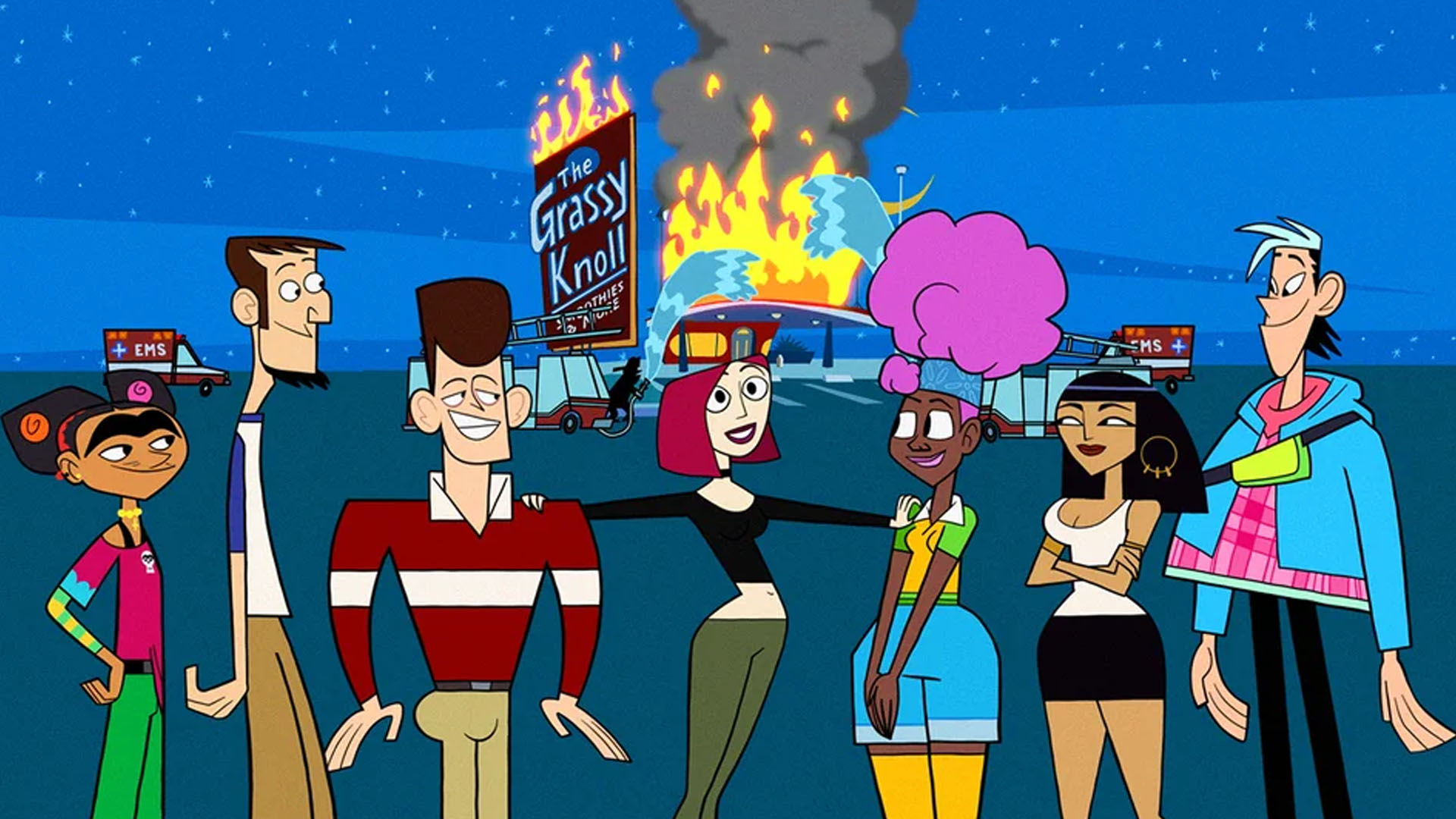Entertainment
Clone High Ending Explained: The Cult Cartoon Has Thawed and Is More Relevant Than Ever!

Max Revival Brings Back Animated Comedy in Blissfully Silly Form! Clone High, the cheerfully anarchic and ruthlessly ridiculous cartoon comedy created by Phil Lord, Chris Miller, and Bill Lawrence, has kept up despite being trapped in suspended animation for a decade.
Clone High picks up right where it left off with its story of famous guys, and ladies dug up way, way back in the 1980s by secret government employees, darting around with rapid-fire jokes, sight gags, and inspired narrative that pokes gentle fun at more severe and angst-filled teen dramas.
If you liked Clone High at the turn of the century, you’d like it even more now. But, if you still need to present it, the modifications to its original formula will be appealing.
Also Read: All American Season 6: Is It Renewed Or Cancelled?
Clone High Recap and Ending Explained

These first two episodes demonstrate that the series hasn’t missed a beat in the two decades since it was released.
Clone High is as hilarious as usual, from JFK’s increasingly bizarre sexual remarks to Principal Scudworth’s dissection of what the clones have missed in the previous twenty years.
This new season is the ideal combination of what has always made this series work: a powerful balance of silliness coupled with genuine caring for these individuals and their relationships and some of the best laughs on television today.
As Lord, Miller, and Lawrence’s impact in films and television has risen, it appears that the world is now ready for Clone High and the brilliance it harbors
Viewers familiar with the original Clone High will notice that Gandhi (voiced by Michael McDonald), Abe’s best buddy and sidekick, has not been unfrozen along with the other clones.
It makes sense, considering that Gandhi’s portrayal sparked demonstrations and hunger strikes in India, prompting MTV to discontinue Clone High.
Clone High Season 2 briefly mentions Gandhi in a way that fans may not find very pleasing, as much of a compromise as it can afford.
When viewed from the perspective of the show’s original cancellation, that moment and some of the “cancel culture” criticism may appear to be an apology tour. On the other hand, the new personalities and tales provide satisfying substitutes for a very tense scenario.
While the stories get massive during the ten-chapter season, Clone High never takes itself too seriously.
The last episode is a “paradigm-shifting opus” titled “For Your Consideration,” which functions as a parody of Emmy-bait solo chapters, with characters stating things like “Your life has been so epic and award-worthy!” It’s also a wonderfully innovative episode that pushes the show’s flat, brilliant aesthetic style to extremes and dances between emotive and cynical. By the conclusion, we found myself misting up a little and chuckling at ourselves for misting up.
In a nutshell, that’s Clone High. It’s not aiming to make you think and is unlikely to make you weep. But it will make you laugh terribly.


